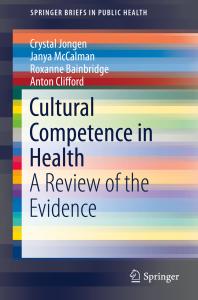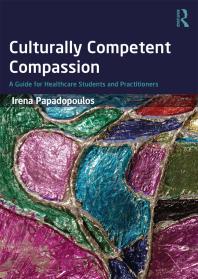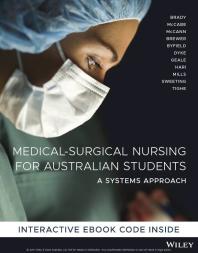
 Cultural Competence in Health (2017)
Supports evidence-informed approaches to improving the cultural competence of health service delivery.
By reviewing the evidence from Australia, Canada, New Zealand and the US. Provides clear and systematic overview of the interventions and indicators applied to enable health system agencies
to work effectively in various cross-cultural health care situations.
Identifies effective approaches and strategies for improving the situation; reviews the indicators for measuring progress; assesses the health outcomes associated with cultural competence;
summarizes the quality of the evidence; and presents an evidence-informed conceptual framework for cultural competence in health.
Cultural Competence in Health (2017)
Supports evidence-informed approaches to improving the cultural competence of health service delivery.
By reviewing the evidence from Australia, Canada, New Zealand and the US. Provides clear and systematic overview of the interventions and indicators applied to enable health system agencies
to work effectively in various cross-cultural health care situations.
Identifies effective approaches and strategies for improving the situation; reviews the indicators for measuring progress; assesses the health outcomes associated with cultural competence;
summarizes the quality of the evidence; and presents an evidence-informed conceptual framework for cultural competence in health.
 Culturally Competent Compassion: A Guide for Healthcare Students and Practitioners (2018)
Discusses the philosophical and religious roots of compassion before investigating notions of health, illness, culture and multicultural societies.
Drawing this information together, it then introduces two invaluable frameworks for practice, one of cultural competence and one of culturally competent compassion,
and applies them to care scenarios. Discusses how nurses in different countries understand and provide compassion in practice;
how students learn about compassion; how leaders can create and champion compassionate working environments; and how we can, and whether we should, measure compassion.
Culturally Competent Compassion: A Guide for Healthcare Students and Practitioners (2018)
Discusses the philosophical and religious roots of compassion before investigating notions of health, illness, culture and multicultural societies.
Drawing this information together, it then introduces two invaluable frameworks for practice, one of cultural competence and one of culturally competent compassion,
and applies them to care scenarios. Discusses how nurses in different countries understand and provide compassion in practice;
how students learn about compassion; how leaders can create and champion compassionate working environments; and how we can, and whether we should, measure compassion.
 Medical Surgical Nursing for Australian Students (2022)
Includes chapters on the integumentary system, respiratory system, circulatory system, digestive system, urinary system, endocrine system etc
Medical Surgical Nursing for Australian Students (2022)
Includes chapters on the integumentary system, respiratory system, circulatory system, digestive system, urinary system, endocrine system etc